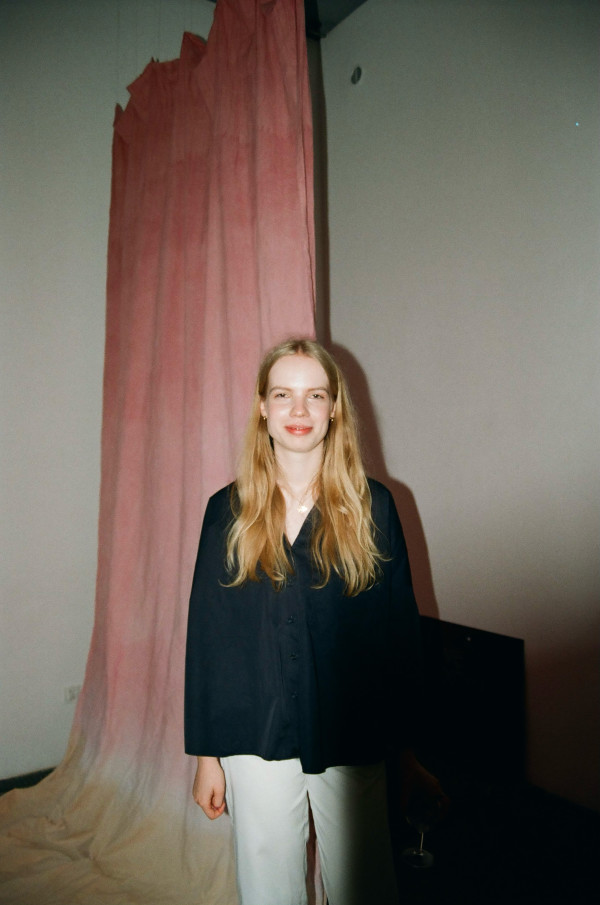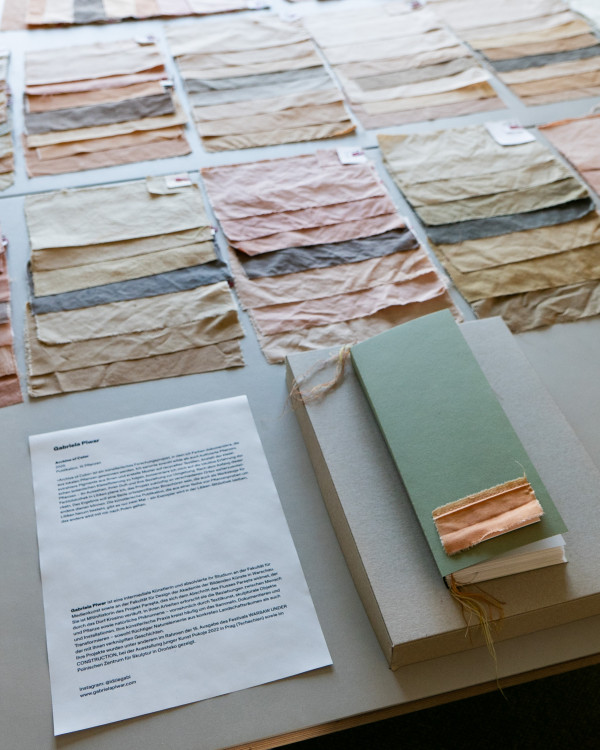Archive of Color is an ongoing artistic research project in which I document colors derived from local plants. I collect both wild and cultivated species, extract pigments from them, and create samples on recycled textiles. Rather than following botanical classifications, I focus on an intuitive experience of each plant - its color, scent, and connection to place. The project began in Libken during my residency and will continue to evolve in new locations. The outcome will be a series of site-specific publications that may also serve as tools for other creators. The booklet, featuring samples from the surroundings of Libken, exists in only two copies - one remains in the Libken library, and the other I brought with me to Poland.
Gabriela Piwar is an intermedia artist and has graduated at the Faculty of Media Art and the Faculty of Design at the Academy of Fine Arts in Warsaw. She is co-creator of Projekt Parsęta dedicated to the Parsęta River on the section running through the village of Krosino. In her works, she explores relationships between humans and plants, as well as natural phenomena, through textile art, sculptural objects, and installations. Her artistic practice often revolves around collecting, documenting, and transforming - both ephemeral elements of nature from specific locations and the histories connected to them. Her projects have been exhibited, among others, during the 15th edition of the WARSAW UNDER CONSTRUCTION festival, at the "Pokoje 2022" young art exhibition in Prague, Czech Republic, and at the Polish Sculpture Center in Orońsko.
https://gabrielapiwar.com/
Instagram: @idziegabi
///
Photos: Karol Szymborski, Gabriela Piwar

